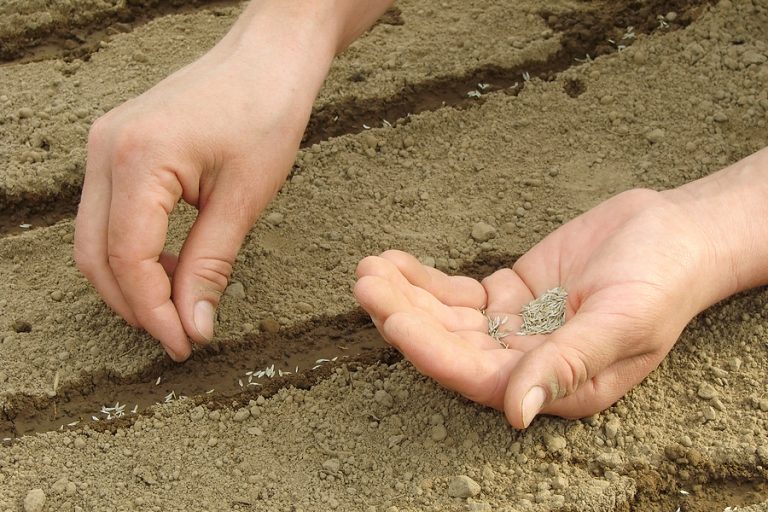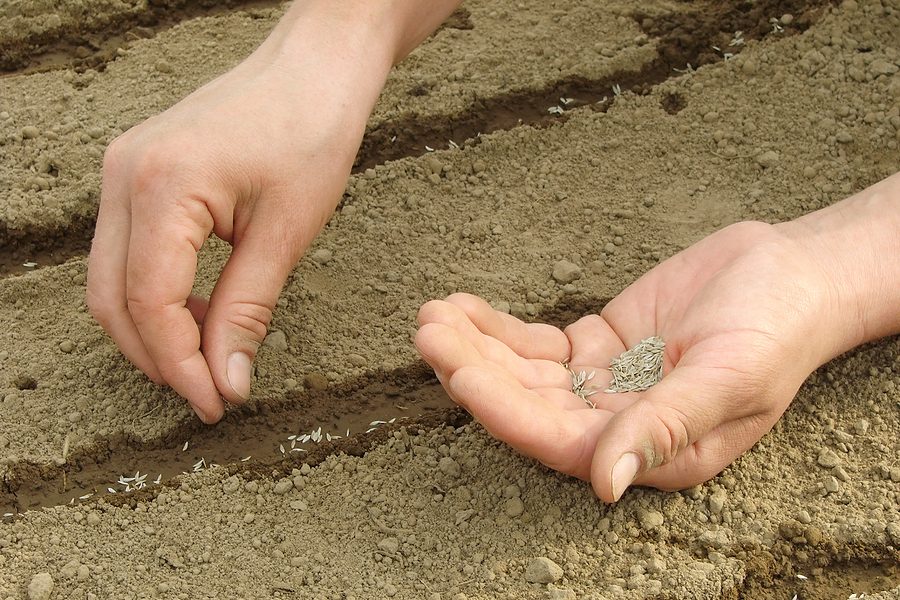The second melacha is zore’ah, which is sowing (as in “planting,” not to be confused with tofeir, which is sewing with a needle and thread). Zore’ah was one of the 11 agricultural labors used in constructing the Mishkan. Zore’ah refers not only to placing the seed in the ground, but also to any activity that promotes plant growth.
 Aside from actively planting seeds, one must be careful not to drop seeds from fruit one is eating on the soil where they might germinate.
Aside from actively planting seeds, one must be careful not to drop seeds from fruit one is eating on the soil where they might germinate.
According to some opinions, the melacha of zore’ah is different from other melachot in that it would not be violated until the seed germinates three days later. According to this opinion, one could obviate transgression by removing the seed within this time frame. According to other opinions, the melacha is transgressed immediately upon planting. It is therefore advisable to pick up seeds that may fall from fruit one is eating. (Such edible seeds are not muktza, though other types of seeds may be. A full discussion of which seeds are muktza is beyond our scope.)
Not only planting seeds, but any activity that encourages plant growth is prohibited, such as watering. Accordingly, one may not spill out water, wash hands, or even spit onto grass. (According to most opinions, urinating on plants would not violate zore’ah as it does not encourage plant growth, though it is to be avoided except in the most extreme case of need.) Similarly, opening the shades specifically to let the sun shine on a houseplant is prohibited as zore’ah (although one may open the shades for one’s own benefit and if the plant gets light as well, so be it).

